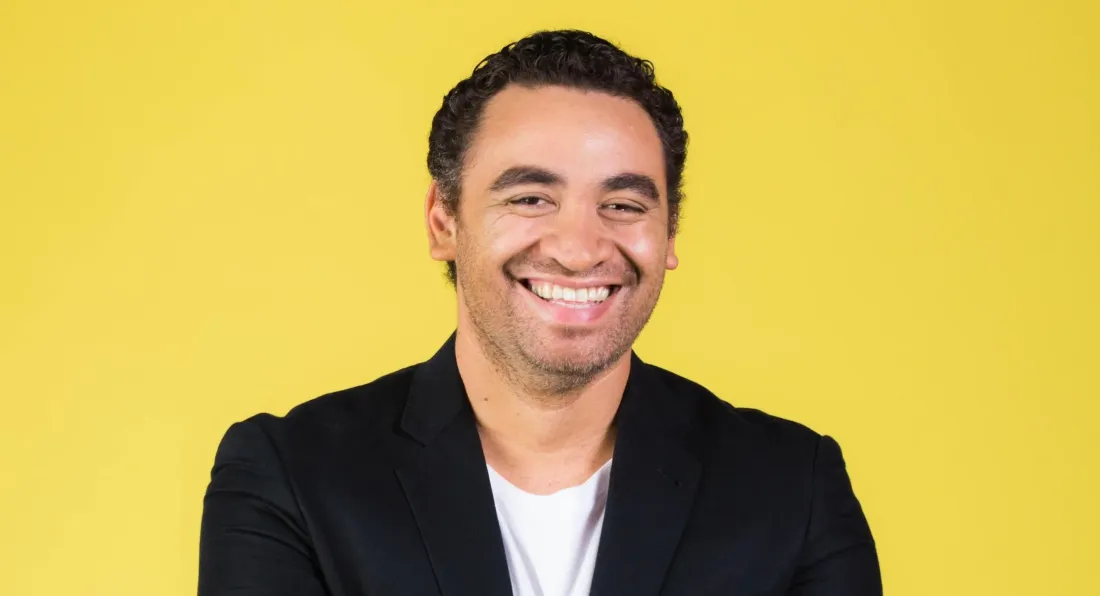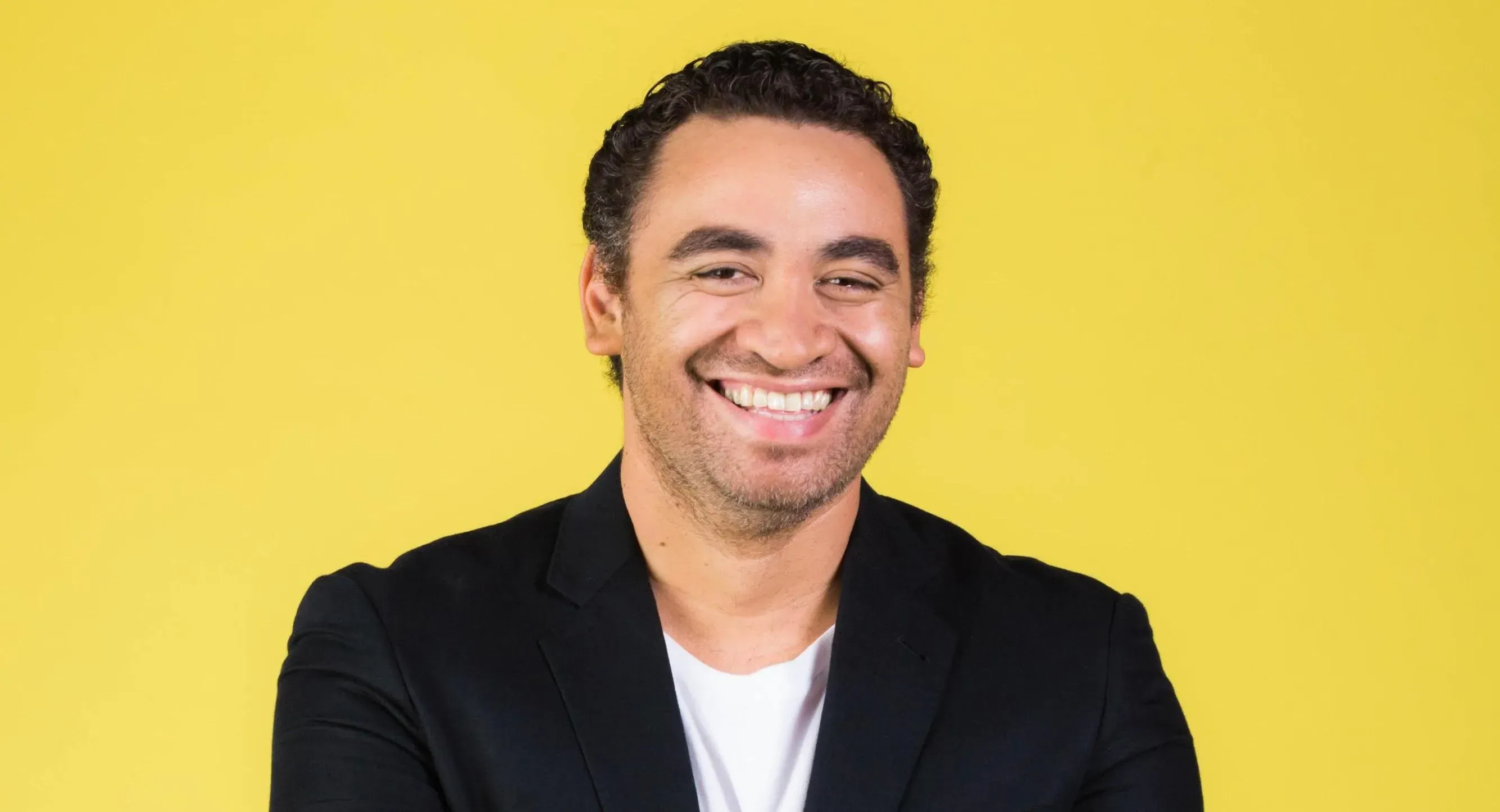Tainui Tukiwaho: Challenging the status quo
Written by


“The win is when the term Māori theatre goes away and we get to be theatre, or conversely non-Māori theatre companies start calling themselves pākehā theatre. If we are going to identify theatre companies by race, we all need to do it.”
When Tainui Tukiwaho (Te Arawa/Tuhoe) first graduated from Unitec in 2001, he was adamant that he would not be cast in Māori roles. This was not a rejection of his cultural identity, quite the opposite in fact. It was a rejection of the way that actors who are Māori were pigeonholed into roles of limited scope. “There was a single faceted perspective of what a Māori was. I didn’t want to get Māori roles, I wanted to get cast as a person.”
Despite best intentions, he faced a single-minded industry at the time. Finding himself constantly referred to as a Māori actor, he decided to change his tact by wholeheartedly embracing the identity and creating theatre that contributed to broadening the perspective of Māori representation. “Instead of fighting against it, I decided to work with it. By building on different facets we challenge people to broaden their perspective of what being Māori actually means. That was the better fight. The other way made it seem like I wasn’t proud to be Māori and undermined my culture which wasn’t what I wanted to do.”
The battle that Tainui has engaged in since is pushing towards a recognition that the current norm of theatre in New Zealand defaults to pākehā theatre, and that this norm is a European construct that was brought here by settlers. As a result, the current theatre norm currently sits largely unacknowledged within a particular cultural framework for storytelling and defining theatre. The fact that this assumption of the norm goes largely unrecognised has great risks for limiting our creative output as a country. As Tainui explained, “defaulting to pākehā work being the norm undermines everything else when the norm is not identified as a pākehā construct.” If we openly recognise that the current norm in theatre sits within the framework of a European construct, says Tainui, if we use that language, then we open up space to have a conversation about whether that European construct is what we should be embracing as our norm.
When he first decided to make Māori theatre, there were no companies making Māori work in Auckland. He looked to his contemporaries, specifically Wellington-based theatre practitioners Hone Kouka and Mīria George who through Tawata Productions were leading the charge for Māori theatre, and he set himself the challenge of being part of bringing Māori theatre to Auckland’s stages. In 2012, Tainui set up Te Rēhia Theatre, a company dedicated to the revitalisation of te ao Māori through theatre.
Since then, Tainui has been creating productions that place tikanga Māori at its heart and are predominantly in te reo. He has spent many years trying to find the language model that walks the fine balance between engaging non-reo speaking audiences and not over-simplifying the language in a way that strips meaning for those that speak te reo. He has played around with different models for different pieces of work. For example, with Purapurawhetu, the first night they performed the play in English, and all following performances were in full te reo. They offered discounted or free tickets to those who came to the English night to return to experience the Māori version.
With his current work, a translation of Gary Henderson’s classic thriller Mo and Jess Kill Susie, called E Kore A Muri E Hokia, he played with logic to engage non-reo speaking audiences. Mo and Jess are two young Māori women who take a pākehā police officer captive. They speak te reo Māori as a secret language in front of the pākehā police officer. When it turns out that she understands them, the play continues fully in te reo. “This allows audiences who don’t understand the language to engage with the drama.” But it goes much further than that. The way that E Kore A Muri E Hokia uses te reo Māori provides a seamless contemporary example of how the language is relevant to the present day. “There is a logic to it so people can understand that there are real life times when we do speak our language.” For Tainui, “This is an opportunity for us to be part of the revitalisation of te reo in our modern lives making the language live and breathe today.”
It is not an easy road that he has chosen, and he says that he hasn’t found the model that works yet. “It would be easier to get bums on seats if we had a different kaupapa. Theatre is a terrible business to get into. I think the hardest thing is to try and sell tickets to a te reo Māori show in a mainstream theatre because those audiences aren’t reo speakers and if they don’t know the story trying to convince them is quite a big struggle.”
However, his vision for what he wants to achieve is strong, and theatre is the the method that he has found to be able to achieve it. “I have a passion for telling stories; I have a passion for highlighting how wonderful I think my culture and my people are; and for working in a collaborative nature. Theatre is the medium for which that all seems to fit.” Through his career in theatre, Tainui has been able to contribute to the creation of works that challenge the stereotypes of what it means to be Māori and provide contemporary examples of te reo Māori being used allowing the language to become normalised.
In 2015, Tainui was integral in establishing Auckland’s Te Pou Theatre. Named the Māori home of theatre, Te Pou provides a whare that places tikanga Māori at its heart. Through their work they aim to normalise the place of tikanga Māori and te reo in the sector. “We are actively working on what we see as necessary change in the industry. A tikanga based whare [for theatre] didn’t exist anywhere in the country. My ideal world is that all our whare in New Zealand will acknowledge tikanga, not just having one building that does it. It comes back to the Treaty relationship and where that can live within our sector.”
Te Pou as an indigenous space for theatre making has opened up the conversation for where the tikanga for Māori theatre should be made. They have successfully created a space where Māori and non-Māori can come together and learn about te ao Māori through the creation of work. Tainui recognises that this is having the biggest influence for “Māori who aren’t confident in their kawa and tikanga, or non-Māori who want to understand it.” The next stage, he says, is to extend that offering to those Māori arts practitioners who are already confident in creating work in a tikanga-based way. Ultimately, he would like Te Pou to be able to commission work so that Māori can support Māori to get their mahi done.
After many years actively contributing towards this battle, Tainui is beginning to see some changes in the industry. Until relatively recently, there were no theatres in the country that had any protocol around how to acknowledge tangata whenua, or hold powhiri. This is starting to shift now. In 2014, when Te Rehia Theatre Company’s work Hoki Mai Tama Ma was performed at Centrepoint Theatre in Palmerston North, artistic director, Jeff Kingsford-Brown went to great efforts to engage tangata whenua and make space for a powhiri. “As time goes by it can become a tikanga for their whare. This was the first thing of this kind. I’m seeing it more and more now.”
The same can be said for the conversation around the language that is used to define theatre in this country. Those conversations are beginning to permeate the consciousness of mainstream theatre practitioners. “The win”, says Tainui, “is when this drive isn’t necessary anymore. Where the term Māori theatre goes away and we get to be theatre, or conversely non-Māori theatre companies start calling themselves pākehā theatre. If we are going to identify theatre companies by race, we all need to do it.”
Upcoming works by Tainui Tukiwaho:
Te Rēhia Theatre presents… Larger Than Life - An Adventure of Epic Proportions
Take a journey through 60’s, 70’s and 80’s rural Aotearoa with politics, humour and classic kiwi tunes
Written by Chris Rex Martin and Tainui Tukiwaho | Directed by Tainui Tukiwaho
June 24 - 27, Te Pou Theatre, $15 - $20, Bookings via iticket
June 30 & July 1, The Herald Theatre, $15 - $25, Bookings via Auckland Live
Te Rēhia Theatre presents… Mo & Jess Kill Susie - E Kore a Muri Hokia
A classic New Zealand thriller with a Te reo Māori translation
Directed by Tainui Tukiwaho / Written by Gary Henderson / Translated by Ani-Piki Tuari, Hania Douglas, Te Aorere Pewhairangi & Tawaroa Kawana.
Tuesday 27 June - Saturday 1 July, 6.30pm, Basement Theatre
Tainui Tukiwaho is an ART Venture 2015 participant - an initiative of Arts Regional Trust Te Taumata Toi-a-iwi (ART) with delivery partners The Big Idea.